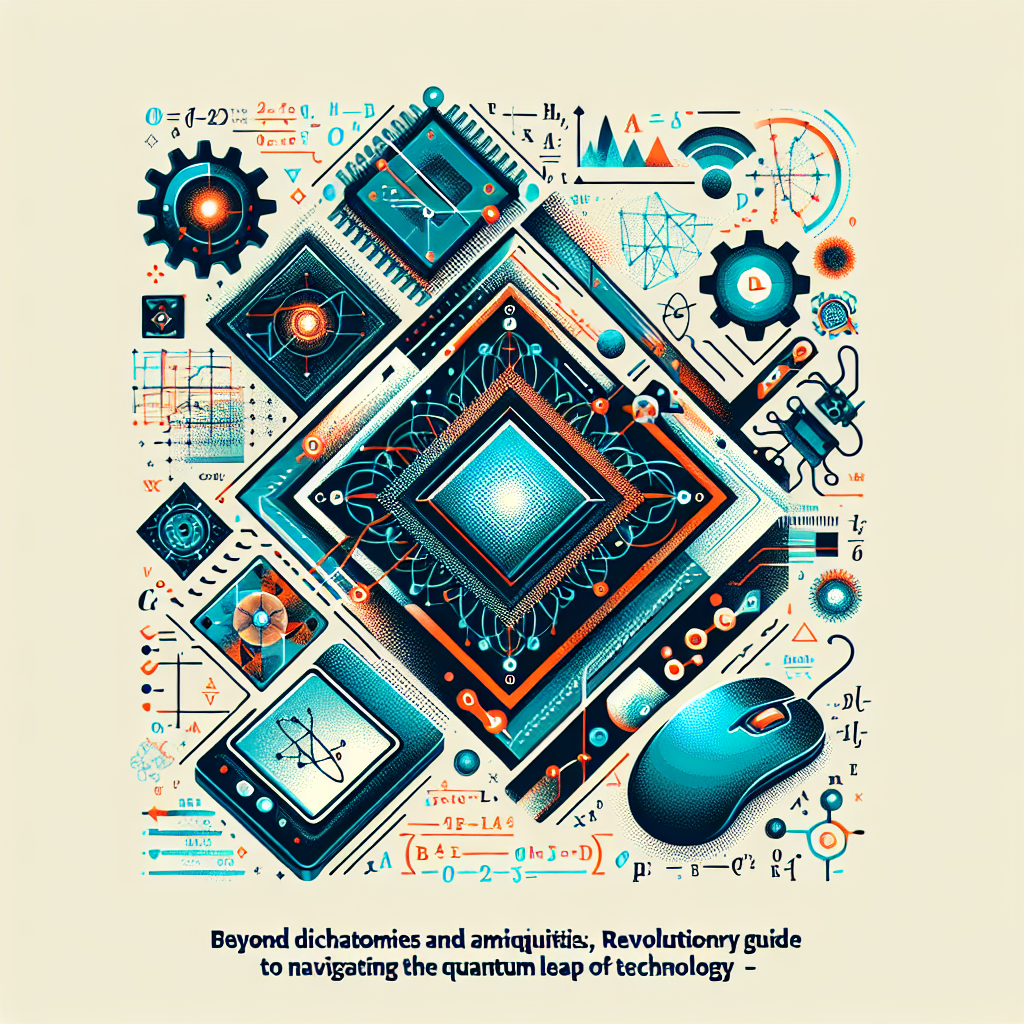Quantum Leap: A Future Painted by Cognitive Computing
Explore the world of quantum computing and its potential to revolutionize our approach to problem-solving, transforming industries and creating


Imagine a world where the limits of technology are not dictated by the physical constraints of silicon circuits, but rather by the boundless potential of human cognition. This is the promise of quantum computing, a technology that could redefine our understanding of possibility. But what if, beyond the realm of computing, this cognitive model could disrupt everything?
The challenges of our time are complex and multifaceted, requiring solutions that outpace our current technological capabilities. The limitations of classical computing have become increasingly apparent, particularly in fields requiring complex problem-solving and data analysis, such as genomics, climate modeling, and artificial intelligence.
Enter quantum computing. By harnessing the principles of quantum physics, scientists and engineers are developing computers capable of processing information at an unprecedented scale and speed. The initial strategy is to optimize computational algorithms, enabling quantum computers to solve problems beyond the reach of classical systems.

The journey towards fully functional quantum computers is not without its obstacles. The delicate nature of quantum systems, which require precise control and isolation from external influences, presents significant challenges. However, as researchers continue to explore novel approaches, remarkable progress is being made.
One such breakthrough is the development of quantum error correction, a technique that mitigates the effects of environmental noise, a key obstacle to reliable quantum computation. This development marks a significant step towards practical quantum computing.
As in genomics, where scientists decode the language of life, quantum computing requires us to decode the fundamental laws of the universe. The lessons learned in genomics about the value of interdisciplinary collaboration and the power of big data are directly applicable to the development of quantum computing.
Best practices in the field of quantum computing are being established through rigorous scientific research and industry collaboration. These include the development of quantum algorithms, the design of quantum-resistant cryptography, and the promotion of quantum literacy within the broader scientific community and beyond.
Replicating the success of early quantum computing projects requires a combination of factors: a deep understanding of both classical and quantum physics, a knack for creative problem-solving, and a willingness to venture into the unknown. With these ingredients, the future of quantum computing looks bright.
In conclusion, the development of quantum computing represents a powerful convergence of science, engineering, and technology. As we stand on the cusp of this new era, it is clear that the potential of quantum computing is not just about faster computers. It’s about a profound shift in our understanding of the world, enabling us to solve complex problems and explore new frontiers of knowledge. This is the promise of quantum computing, a promise that is closer to reality than ever before.





